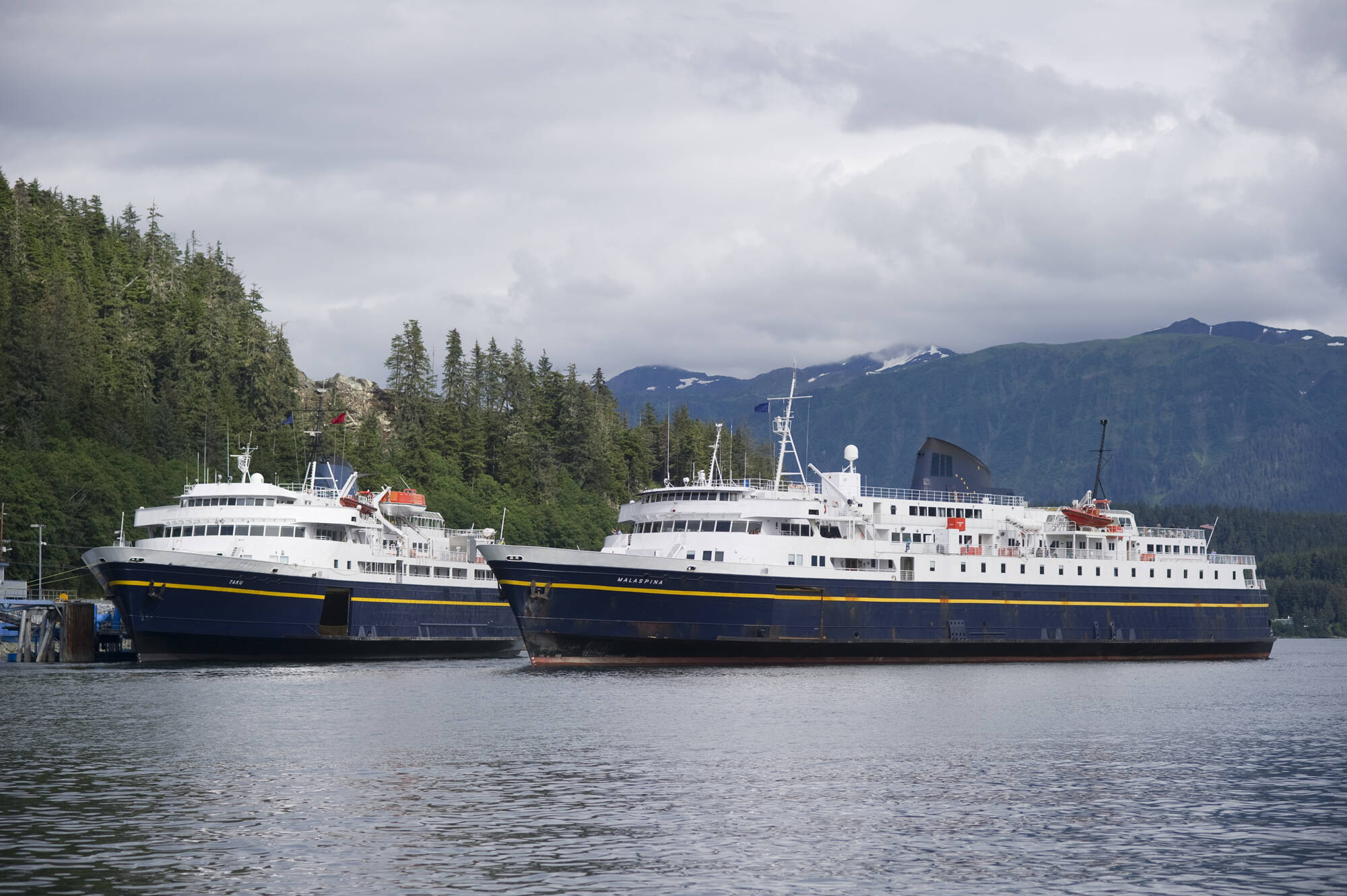The cost to the state for docking an Alaska ferry that has been idled for nearly two years is close to $900,000 a year, with much of that representing insurance costs that were not previously publicly disclosed, CoastAlaska reported on Monday.
The Malaspina is one of the original ferries in the state ferry fleet, dating back to the early 1960s, and Gov. Mike Dunleavy’s administration has balked at investing in the overhaul of one of the ship’s original engines.
Estimates for getting new engines, steel work and restoring a certificate from the U.S. Coast Guard that lapsed while the ship has been laid up are in the $70 million range.
The state has been contracting with a company for just over $400,000 a year to store the vessel at a private dock near Ketchikan. CoastAlaska earlier this year reported that monthly power costs to heat the vessel boost the cost to about $447,000.
But that doesn’t include insurance costs. The state Department of Transportation and Public Facilities told CoastAlaska that insurance costs were about $420,000 during the last fiscal year, which ended June 30, and that the figure would go up “slightly” during the current fiscal year that ends in June 2022.
Emails obtained by CoastAlaska through a records request showed officials were surprised and frustrated with the costs of maintaining the Malaspina.
It was revealed in an email from Mary Siroky, a recently retired deputy commissioner, that the monthly cost of keeping the Malaspina was close to $75,000.
It “seems clear to me, even if we give the Mal away, we’re coming out ahead very quickly,” Rob Carpenter, a deputy commissioner, wrote in an August 2020 email.
The Dunleavy administration tried to give the ship to the Philippines. But Randy Ruaro, Dunleavy’s acting chief of staff, said that fell through when the Philippine government learned it would cost more than $50 million to rehabilitate the ferry to serve as a passenger ship.
The emails also showed commercial interest in the ferry, with one company saying it wanted the Malaspina for anti-piracy operations off the coast of Somalia.
“We would be using it as a platform for housing personnel over in the Middle East,” wrote Jonathan McConnell, president of Meridian Global Consulting, a security firm based in Mobile, Alabama.
He provided recent email chains between the company and state officials showing that more than a year had passed since he first expressed interest. He last reached out in late July.
“We felt largely stonewalled by them,” McConnell said, noting the company was willing to pay fair market value of close to $1 million for the ferry.
Another prospective buyer in the United Arab Emirates made a cash offer via email for $625,000 for the ferry as-is, emails showed.
Selling surplus ships was a key recommendation of a task force providing advice on the future of the state ferry fleet.
“Sell it or scrap it,” said Tom Barrett, a retired Coast Guard admiral tasked with chairing the group. “But you just don’t want to keep holding it there indefinitely. Also you’ve got insurance, but it’s a risk factor, it’s an old ship and it’s tied up at a dock.”
Ruaro said he will visit Ketchikan to inspect the ship’s condition at Ward Cove. He said he couldn’t immediately explain why there had been no answer to prospective buyers.
He said he would talk to the transportation department, “and we’ll make sure that any offers or expressions of interest are all reviewed and vetted for options.”

